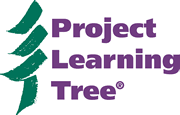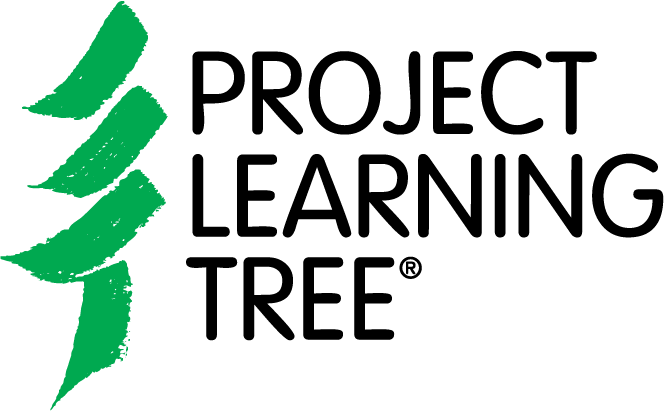It’s amazing how many organisms live off dead organic material and recycle those materials back into life. In this inquiry-based activity, your students will devise an experiment to investigate the eating habits of one of these creatures. They will gain both an understanding of how decomposition works and an appreciation for some of nature’s less-heralded organisms.
This is one of 96 activities that can be found in PLT’s PreK-8 Environmental Education Activity Guide. To get the activity, attend a training either in person or online and receive PLT’s PreK-8 Guide. Below are some supporting resources for this activity.
STEM STRATEGIES 
Engage students in real-world applications of STEM (science, technology, engineering, math) education.
Try these STEM Connections for this PLT activity:
RECOMMENDED READING 
Expand your students’ learning and imaginations. Help students meet their reading goals, while building upon concepts learned in this activity, with the following children’s book recommendations:
ADDITIONAL RESOURCES 
The following tools and resources may be used to enhance the activity.
-
Dirt with Sid the Science Kid
Dirt on Dirt, an episode of Sid the Science Kid produced by PBS Kids, explores what makes dirt, dirt! In this episode, Sid and his friends learn about the different types of soil. Paired with a Dirt on Dirt Activity, students ages PreK-2 can follow Sid’s adventure and investigate the dirt and soil on their school grounds.
-
Ag Across America
Ag Across America is an online geography game for grades 3-5. With this game, students will learn more about how farms provide our food, fiber, and energy. The game guides students through a series of video and trivia questions about farms across the U.S. When you answer correctly, players collect items to have on their own virtual farm. Find more games and resources for young learners at My American Farm, and professional development opportunities for educators through On the Farm STEM.
-
Pee Wee Meets the Pollinators
This illustrated children’s story takes students on an adventure to a rooftop garden to learn about the amazing work of pollinators. Witness the birth of a monarch butterfly, follow a bee, and meet a chorus of crickets. The book also contains poems, songs as well as additional notes to benefit teachers, parents, and children. To purchase Pee Wee Meets the Pollinators or other books in the Pee Wee series visit Castle Compost.
-
NatureWorks Video Series
Discover the natural world and the connections that make nature work in this 16-part video series for students in grades 3-6. Developed and produced by New Hampshire Public Television and the Squam Lakes Natural Science Center, each episode is fifteen minutes long and helps students explore the ways living things interact with the environment. NatureWorks is designed to align with state and national science frameworks and standards and is a great way to introduce young people to the natural sciences.
Each video consists of five distinct segments: an instructional section, which covers basic concepts like habitat, adaptation and biomes; an interactive Q&A segment that explores the show topics in greater detail; a close-up segment focusing on a particular animal or plant; an Outdoor Trek featuring student reports; and a review which sums up material presented in the program.
-
U.S. Composting Council
All types of composting from backyard to large-scale, community-wide composting are discussed by the U.S. Composting Council. Visit their Web site for a list of composting activities and resources.
-
Web Soil Survey from the USDA
This is a website that contains the web soil survey from the USDA.
-
Unlock the Secrets in the Soil
Check out the infographic from the USDA’s Natural Resource Conservation Service! These infographics colorfully illustrate soil health: what soil is made of, what’s underneath, and what it does.
-
SoilWeb
A free app that can be downloaded onto Apple and Android devices. A more technical application, SoilWeb allows users to access GPS based, real-time USDA-NRCS soil survey data. Using your geographic location, this app retrieves soil type summaries, including soil series names and image profiles.
-
WildLab Bird
A free app that can be downloaded onto any Apple device (try iBird Lite for Android). Use WildLab Bird to learn the basics of bird identification. This application uses audio, photographs, maps, and the process of elimination to help identify over 200 bird species. Sightings can also be entered into a national bird watching database for comparison.
-
NACD’s Soil Education Resources
Have a look at NACD’s soil resources: Soil to Spoon and Dig Deeper: Mysteries in the Soil. Existing tools feature a poster contest, student booklets, educator guides, and ideas for hands-on activities.
-
Invasive Paper Project
The Invasive Paper Project travels throughout Detroit to offer papermaking demos and workshops with invasive plants (like Phragmites, Honeysuckle, Garlic Mustard) that have been removed from city parks, lots, and green spaces in many different communities. This project creates community awareness about invasive plant species and their effects on local ecosystems, while also providing an opportunity to think about invasive plant life differently. While eradication is important, projects like this one allow participants to experiment with new uses and products from otherwise unwanted raw materials. Consider turning your next papermaking activity into a service-learning project by using invasive species pulp instead of paper scraps!
-
Recycle City
EPA’s Recycle City’s interactive website showcases an interactive map, scavenger hunt, and game that all explore ways homes and businesses can recycle, reuse, or reduce waste. Use this website to spark interesting discussions around waste and recycling in places and spaces where students can have direct impacts.


